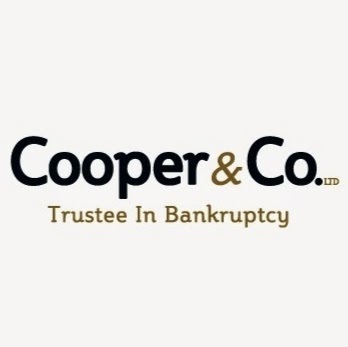Cooper & Co. Exposes Bankruptcy Myths
July 20, 2016 (PRLEAP.COM) Business News
July 20, 2016 - What does it mean to go bankrupt? There are certainly a lot of misconceptions amongst Canadians about what happens when bankruptcy occurs. In a revealing blog, Cooper & Co. Ltd offers insights and industry knowledge to dispel the myths that surround bankruptcy. From the good to the bad, it is important to know what it means to be bankrupt and what the consequences are. The simple truth is, myths are easy to believe. Once someone says one thing, it is passed around and eventually become gospel truth … even if it isn't. Bankruptcy highlights this cycle of misinformation perfectly.
Cooper & Co. Ltd can help Canadians understand bankruptcy and navigate beyond the common myths that surround the subject. The outlet has written an engaging blog post and even created an entertaining video to give Canadians a clear understanding of bankruptcy myths.
1. I will lose my house & personal possessions
First, it is the equity in a house that is of interest to the trustee – in other words, would there be any money left over after sale costs? If not, then keep your house during a bankruptcy. As long as you keep paying your mortgage, you can keep your house.
If your house does have equity, Ontario property legislation allows you $10,000 in exemption. So you'd have to have over $10,000 in equity before the house was of interest to the trustee. And even then, if you made a settlement with the trustee to pay the equity into the estate, you could keep your house and that equity payment would be distributed by the trustee to the creditors. Very few trustees actually seize houses these days because of these factors.
As far as personal possessions, there are also exemptions for this, but unless there are significant items such as fine art which could be liquidated, personal items are not seized.
2. My trustee will tell me what I can spend my money on
Also false. The trustee assists the bankrupt in laying out a personal monthly budget that is reasonable, but it is a guideline based on income. Since income is reported monthly during a bankruptcy, the trustee sees where you money is going, and provided it is reasonable there is no need for any issues regarding the bankrupt's discharge.
3. I will go to jail
Absolutely not. This is not a Dickens novel. Debtor prisons existed long ago, but the spirit of the bankruptcy law today is rehabilitative in nature – i.e., the government wants you to have a fresh start. Bankruptcy law is not meant to be punitive.
4. My spouse/partner's credit will be affected
Totally untrue. Nobody can cause credit harm to another person simply by virtue of filing a bankruptcy in Canada. Even married people cannot do any credit harm to each other. If you have joint debts, of course, and only one person files bankruptcy, the other is liable for that debt, but that would have been the case anyway.
5. I will not be able to renew my mortgage
Almost every client with a conventional mortgage asks this as often their mortgage is coming up for renewal during the time of bankruptcy. Mortgages are usually amortized over a maximum of 25 years. Interest rates are set for specific periods. When the rate comes up for renewal, it is usually a formality with a conventional bank and as long as you are current with your payments there should not be an issue.
About Cooper & Co. Ltd
Cooper & Co. Ltd is a Licensed Insolvency Trustee firm. The company has been in the debt relief industry for over three decades. Over that time, Cooper & Co. has helped over 15,000 clients to escape from debt and understand how to maintain a healthy financial state.
Cooper & Co. Ltd. - Licensed Insolvency Trustee
1120 Finch Avenue West Suite 108
Toronto, Ontario
M3J 3H7
Canada
(416) 665-3383
